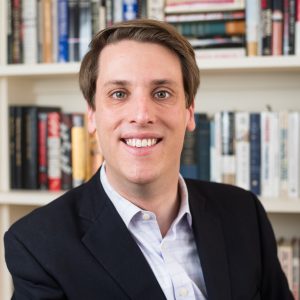Below is the text of my monthly “Editor’s Letter” in the new issue of Washingtonian.
—-
Perhaps it won’t surprise you that congressional staffers are rooting for Paul Ryan—after all, he began as one of them, interning in college with Wisconsin senator Bob Kasten. Just about everyone who starts off working for Congress begins with the dream of running for President. I certainly did. My first exposure to Washington came as a Senate page for Patrick Leahy during high school. When I returned home to Vermont after a semester walking the Capitol halls, I was positive I’d return someday as a member of Congress.
In our biennial Best & Worst of Congress poll (page 68), we ask hundreds of Hill staffers about the members they serve. In the two previous surveys, 2008 and 2010, they tapped Ryan as a “rising star” and a “workhorse,” a category he also won this time around.
This year’s poll was completed before Ryan was picked by Mitt Romney as the Republican vice-presidential nominee, a fact that yields the poll’s most interesting answer: Many on the House GOP’s own staff apparently expect Romney to lose this fall and hope Ryan will make a run at the presidency in 2016.
High hopes for Ryan aren’t new. As early as 2008, he was appearing on our poll as a “member I’d like to see as President.” While people can disagree with his politics and ideology, the policy-minded Ryan seems widely liked as a person on the Hill—one of the serious, good guys. That’s a rare breed in today’s Congress.
The 112th Congress began with such promise: one of the largest freshman classes in history—109 new members—and a reading of the Constitution on the House floor. Three days later, Arizona congresswoman Gabby Giffords was shot at a Congress on Your Corner event in Tucson—a horrific incident that took the lives of six others, including a federal judge and the first congressional staffer killed in the line of duty, Gabe Zimmerman. In December, this Congress will end with what’s likely to be a busy lame-duck session aimed at avoiding the “fiscal cliff” that kicks in next year in federal spending.
In between, there was a colossal mess of a debate over the debt ceiling, Anthony Weiner’s infamous tweet, the ignominious primary defeat of Senator Richard Lugar, coast-to-coast redistricting battles, and just this summer—for only the ninth time in its history—the House reprimanded one of its own: California Democrat Laura Richardson, who allegedly required her staff to work on her campaign.
It was a remarkably unproductive legislative session as well—accomplishing even less than the infamous “do-nothing Congress” of 1948. Last fall, Congress’s approval rating among Americans reached an all-time low of 9 percent.
For today’s generation of young Hill staffers, raised on and inspired by the romantic wonkery of Aaron Sorkin’s The West Wing, these past two years weren’t exactly characterized by the august, high-minded political debates they’d been promised growing up in the 1990s.
This summer Sorkin was back with HBO’s The Newsroom, another idealistic show about the modern media-political-industrial complex and the latest in a new flood of TV shows about starry-eyed, thrilling, and generally heroic jobs in Washington. HBO has Veep, Showtime has Homeland, USA has Political Animals, and ABC has Scandal, in which Kerry Washington’s character proclaims the staff of the crisis-management firm she runs “gladiators in suits.”
Yet today the most popular Washington TV show explicitly avoids politics. CBS’s crime procedural NCIS—which in September starts its tenth season starring Mark Harmon as NCIS special agent Leroy Jethro Gibbs—is a ratings powerhouse.
In fact, Agent Gibbs and his team of investigators at the Washington Navy Yard are America’s favorite TV cast, attracting some 20 million viewers a week—roughly the combined viewership of all three network nightly news programs. NCIS is a deeply traditional drama with tame wisecracks, patriotic heroes, and little of the dark grit that’s come to pervade crime shows such as Dexter or Law & Order SVU.
We have a story this month (“Predator in the Ranks,” page 72) from the real-life case files of the Naval Criminal Investigative Service, one that begins with the death of a second-generation military woman, Petty Officer Amanda Jean Snell.
While it’s not news that actual criminal investigations aren’t as fast and tidy as an hourlong TV show, Harry Jaffe’s article is a real nail-biter that played out during “Snowmageddon” three winters ago and resulted in remarkably astute and dogged police work.
Because of some good cops, a killer is off the streets. Wrapped up in that tale lies an inspirational lesson worthy of an Aaron Sorkin storyline: As much as government employees have been attacked and vilified in recent years, we’re lucky that—whether in the form of congressional staff, police officers, members of the military, or elected leaders—there are still so many workhorses attracted to public service.



Recent Comments